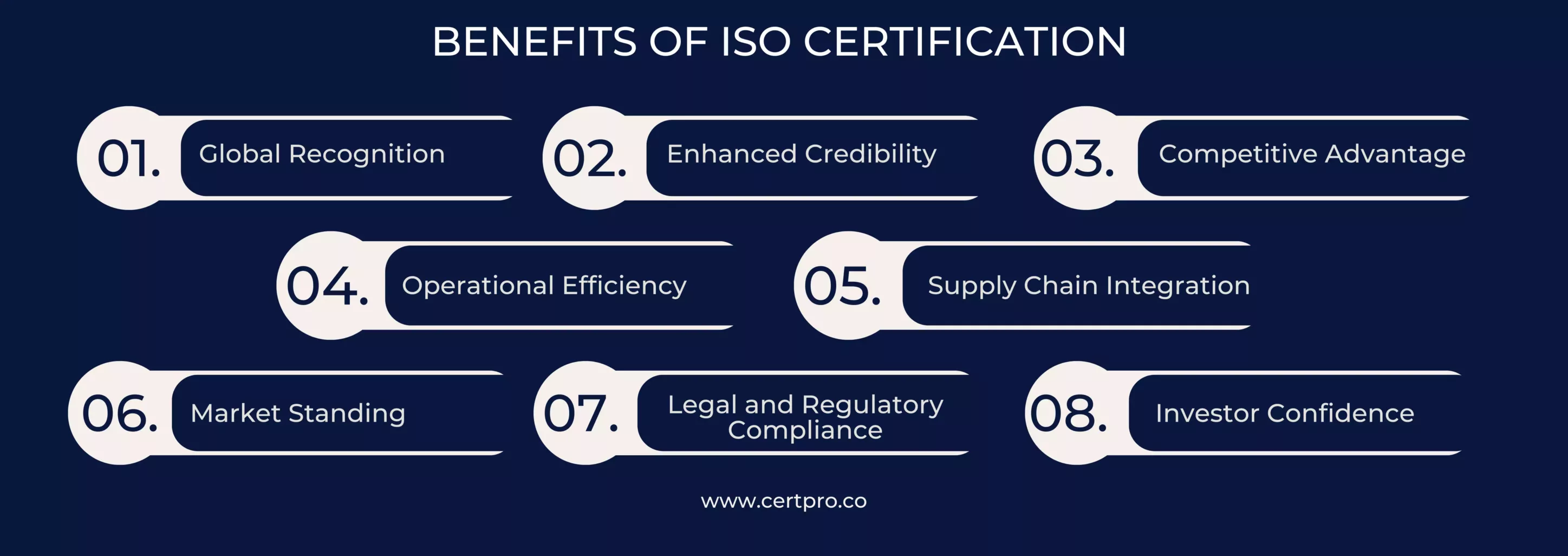Canada
ISO CERTIFICATION IN CANADA
Canada is the second-largest country in terms of total area in North America, and it is located in the north. As such, ISO certification is required in Canada. The southern border with the United States is the longest bi-national land border in the world, spanning over 8,891 kilometers. With much of its area covered in woods and tundra, Canada is a sparsely inhabited country despite its enormous size. Canada is ranked as the tenth largest economy in the world and is one of the top ten trade nations, according to a 2018 survey, which makes ISO certification in Canada necessary.
The expansion of Canada’s manufacturing, mining, and service sectors is responsible for the country’s economy’s shift from being predominantly rural to urbanized and industrialized. About 75% of Canadian jobs are in the service sector, which makes up a large portion of the country’s GDP and highlights the importance of ISO certification there. Notably, the forestry and petroleum sectors serve as the main sources of income for Canada’s primary sector, which makes it distinctive.
Canada, one of the few developed countries that exports energy to the world, has enormous offshore natural gas deposits, with Alberta providing a sizable portion of the country’s oil and gas resources. With 13% of the world’s oil reserves, the nation is a major exporter of a number of minerals, including coking coal, zinc, uranium, gold, nickel, aluminum, steel, and iron ore. Research and development receives significant funding from Canada, where the Canadian Space Agency is actively involved in planetary science, deep space exploration, aviation research, and the construction of rockets and satellites—an area in which ISO Certification in Canada is crucial.
Canada is one of the world’s most educated nations, with a nearly 99% literacy rate, and it prioritizes higher education. The country emphasizes the importance of knowledge and skill development by devoting 5.3% of its GDP to the education sector.
WHY ISO CERTIFICATION IN CANADA?
Obtaining ISO certification is crucial for Canadian organizations looking to maximize operational efficiency, guarantee quality, and foster confidence. Its ISO accreditation demonstrates the organization’s unwavering commitment to maintaining strict standards in a variety of Canadian industries. The significance of ISO 9001 certification stands out in particular. By emphasizing quality management, it enables Canadian firms to develop dependable, customer-focused goods and services.
The way in which ISO 14001 addresses environmental management is equally important; this is an important factor for a country such as Canada, which is trying to achieve sustainable development in the face of fast industrial expansion. As Canada embraces its digital transformation, ISO certification—particularly ISO 27001—becomes increasingly important for protecting sensitive data in the ever-changing digital space.
These certifications are especially important in the diversified Canadian market since they boost customer confidence and give businesses a competitive advantage in the global marketplace. An ISO certification indicates a commitment to strict standards, enhancing product reliability, and reducing waste. It also simplifies procedures, which promotes higher output and lower costs. Canada is home to a large number of ISO certification bodies, all of which provide certification services, advice, and evaluation to help businesses successfully traverse the certification process. Fundamentally, ISO certification in Canada enables businesses to build strong frameworks, conform to global best practices, and actively promote excellence, sustainability, and security in order to actively contribute to the progress of the country.
UNDERSTANDING ISO CERTIFICATION IN CANADA
Obtaining ISO 9001 certification in Canada is a testament to a company’s commitment to providing dependable and superior products and services. The ISO 14001 standard, which emphasizes sustainable growth and addresses environmental concerns, is gaining prominence as Canada’s industrial landscape progresses. Protecting sensitive data is a key component of ISO 27001, which is in line with Canada’s digital transformation efforts. The diversified Canadian market benefits greatly from ISO certification, which boosts customer confidence and makes it possible for companies to compete internationally. Beyond demonstrating compliance with strict standards, ISO certification improves product dependability through process simplification, waste reduction, and inefficiency elimination.
Related Links
SOC 2 in Canada
ISO 27701 in Canada
GDPR in Canada
ISO 27018 in Canada
HIPAA in Canada
CCPA in Canada
PIPEDA in Canada
ISO 17025 in Canada
ISO 13485 in Canada
CE Mark in Canada
GDP in Canada
GLP in Canada
ISO 9001 in Canada
ISO 14001 in Canada
ISO 45001 in Canada
ISO 22000 in Canada
HACCP in Canada
ISO 22301 in Canada
ISO 21001 in Canada
ISO 41001 in Canada
ISO 20000-1 in Canada
In Canada, ISO certification essentially gives companies the ability to set up strong frameworks that are in line with global best practices. Businesses that put quality, sustainability, and security first not only benefit themselves but also help Canada’s standing internationally. The International Organization for Standardization (ISO) formally acknowledges that a company’s management system, procedures, goods, or services satisfy specified standards through ISO certification. This internationally renowned, independent organization creates and distributes standards to guarantee quality, safety, and efficacy in a variety of industries. The broad use of ISO standards makes it easier for Canadian businesses to reach international markets with greater legitimacy. Businesses with ISO certification frequently have a competitive edge by showcasing their dedication to quality and ongoing development. Certification to ISO 14001 is in line with Canada’s emphasis on sustainability and environmental management. Customer requirements are often highlighted in ISO standards, which improve customer satisfaction and retention. For Canadian suppliers participating in international supply chains, ISO certification is very important. An essential component of ISO certification is continual improvement, which helps Canadian companies streamline processes and stay competitive. In the end, ISO certification enhances a business’s reputation by proving adherence to international quality standards, which promotes confidence with clients and associates.

THE ESSENTIAL STEPS OF THE ISO CERTIFICATION PROCESS IN INDIA INCLUDE THE FOLLOWING:
Preparation and Awareness: The first step is to have a thorough understanding of the particular ISO standard that applies to your sector and business objectives. Learn about the benefits, requirements, and implementation processes of the standard.
Planning: Provide a thorough strategy that outlines the actions needed to bring your processes into compliance with the ISO standard. Create an implementation schedule and assign responsibilities appropriately.
Documentation: Create or update the necessary paperwork, including policies, procedures, work instructions, and records, to make sure they meet the requirements of the ISO standard.
Implementation: Integrate your organization’s documented processes and procedures throughout the whole structure. To guarantee a successful deployment, keep a careful eye on things and make any required adjustments.
Internal Audit: Conduct an internal audit to find any non-conformities and assess how effective the implemented processes are. Take care of these problems and make the required adjustments.
Management Review: To assess the development, efficacy, and applicability of the ISO management system implementation, conduct a management review. Determine if any changes or enhancements are required.
Certification Body Selection: Select a reliable certifying body to carry out the external assessment. To determine whether you are ready for certification, the certifying body will carefully review your policies, practices, and execution.
Stage 1 Audit (Document Review): The initial evaluation of your documentation and procedures by the certification organization confirms that they meet the standards of the ISO standard.
Stage 2 Audit (On-Site Audit): To verify the implementation of your ISO management system and assess how well your processes adhere to standard standards, the certification authority conducts an on-site audit.
Certification Decision: The certification body decides whether to grant certification based on the audit findings. If your business complies with the standard’s standards, it will be awarded an ISO certificate.
Surveillance Audits: To verify continuous conformity with the ISO standard, the certifying body conducts surveillance audits on a regular basis. These audits typically take place once a year.
Throughout the entire procedure, tight adherence to the certification organization’s criteria and close communication with them are crucial.
POPULAR ISO STANDARDS IN CANADA
Many ISO standards have been widely adopted throughout Canada’s many industries, helping to raise the bar for efficiency, safety, and quality. Among these, ISO 9001:2015 is noteworthy for its emphasis on the application of quality management systems to guarantee the provision of reliable and consistent goods and services. In keeping with Canada’s emphasis on sustainability, ISO 14001:2015 addresses environmental management systems and encourages ethical behavior amidst the nation’s continuous industrial growth.
In light of Canada’s continuous digital transformation, ISO 27001:2013 has become increasingly important for data security. This standard supports Canada’s digital security initiatives by helping enterprises protect sensitive data. The automotive industry relies heavily on ISO 26262 to guarantee the functional safety of electrical and electronic systems, which in turn improves road safety.
Moreover, ISO 45001:2018 places a high priority on occupational health and safety, which is in perfect harmony with Canada’s dedication to the welfare of its workforce. ISO 22000:2018 covers food safety management systems in the food business, ensuring consumer protection. Energy management is the main focus of ISO 50001:2018, which is in line with Canada’s commitment to sustainable energy practices.
When taken as a whole, these ISO standards are in line with Canada’s improvements in technology, regulatory compliance, and developmental goals. As such, they are essential in advancing industry practices and securing international recognition for Canadian companies.
BENEFITS OF ISO CERTIFICATION IN CANADA
In Canada, ISO certification guarantees that goods and services meet international quality standards, which raises consumer satisfaction and gives businesses a competitive edge. Beyond this, ISO certification reduces the possibility of company failure by ensuring that processes are implemented accurately. The ISO certification process offers significant benefits to Canadian organizations, including increased growth, credibility, and operational excellence.
First and foremost, ISO certification improves a business’s standing in the marketplace by showcasing its adherence to global standards and, eventually, increasing client trust. This increased trustworthiness results in increased customer loyalty and retention, strengthening the company’s standing in the marketplace.
ISO certification enables global market access in Canada by reducing trade obstacles, establishing a recognized quality baseline, and facilitating easier entry into international trade. This is especially advantageous for Canadian businesses looking to grow abroad and take advantage of business prospects. Additionally, ISO-certified Canadian companies have a competitive advantage in the marketplace. With this certification, they stand out from the competition and draw in potential clients and business partners with their commitment to efficiency, quality, and ongoing improvement.
- Global Recognition: The global acceptance of ISO certification opens doors for Canadian businesses, enabling them to trade internationally and increase their market share abroad. This recognition gives Canadian companies a significant competitive advantage and empowers them to conduct business authentically and trustably in foreign markets.
- Enhanced Credibility: On both domestic and international levels, it boosts the credibility and trust of clients, partners, and investors.
- Competitive Advantage: Companies with ISO certification outshine their competitors by showcasing their dedication to excellence and quality.
- Operational Efficiency: Improvements in processes contribute to a general enhancement in operational effectiveness.
- Supply Chain Integration: ISO accreditation is crucial for many international supply chains, offering opportunities to engage in collaborations with partners abroad.
- Market Standing: Attaining ISO certification improves a company’s market reputation, attracts more clients, and broadens business opportunities.
- Legal and Regulatory Compliance: ISO certification streamlines compliance with both national and international laws.
- Investor Confidence: Demonstrating a commitment to best practices boosts investor confidence.
The ability to thrive in a competitive environment, build trust in international markets, maintain moral and sustainable business practices, and continuously improve operations for long-term success are all made possible by ISO certification in Canada.

ISO CERTIFICATION BODIES IN CANADA
The Standards Council of Canada (SCC) is the national accrediting agency for certification bodies in Canada. Several certifying bodies in Canada are allowed to grant ISO certification under the authority of the SCC. These authorized organizations audit businesses to ensure compliance with various ISO standards. Let’s look at some of the major ISO certification bodies in Canada:
1. BQSR: BQSR is a globally recognized ISO certification body that evaluates and certifies enterprises in a wide range of industries, including construction, manufacturing, software, food, and services. BQSR performs rigorous audits around the world with a professional team of auditors and technical experts to verify alignment with established criteria, such as ISO standards. It is best to study official sources, interact directly with BQSR, or refer to accreditation bodies for the most up-to-date information. For organizations seeking certification, understanding the certifying body’s specialization and accreditation scope is critical.
2. NQA Certification Ltd: (National Quality Assurance) is a globally recognized certification body that provides ISO certification services throughout the world, including Canada. NQA is well-known for its competence and international presence in certifying enterprises across many industries against ISO standards. It is best to contact NQA directly or visit their official website for the most up-to-date and accurate information regarding their certification services in Canada.
3. SIS Certifications Pvt Ltd: SIS Certifications Pvt. Ltd., also known as SYNDICATE OF INTERNATIONAL SYSTEM CERTIFICATIONS PRIVATE LIMITED, is a leading certification body specializing in management systems certifications. They offer certifications such as ISO 9001:2008, ISO 14001:2004, OHSAS 18001:2007, ISO 13485, ISO 22000, ISO 27001, and product certifications. SIS Certifications, accredited by the International Organization for Accreditation Services (IOAS) in Grenada, has globally certified businesses since 2003, certifying over 1000 organizations worldwide. The organization is dedicated to maintaining the credibility and integrity of its certification process, emphasizing continuous improvement and skill development. Organizations seeking certification are advised to understand the certifying body’s specialization and accreditation scope through official sources or direct interaction for the most accurate information.
4. Bureau Veritas: Bureau Veritas is a global certification and inspection services firm that specializes in auditing, testing, and certification across a wide range of industries. They are critical in ensuring that firms adhere to standards and laws, with an emphasis on quality, safety, and sustainability. Bureau Veritas is a prominent participant in confirming the conformity of products, systems, and services to industry-specific standards. They are known for their certifications in areas such as quality management, environmental management, and occupational health and safety. For the most up-to-date and detailed information, contact Bureau Veritas directly or visit their official website.
5. Johanson Group: Johanson Group is a specialized certification business that provides SOC 1, SOC 2, SOC 3, HIPAA, and ISO/IEC 27001 tests around the world. They are well-known for their wide experience and individualized approach, and they provide tailored solutions with a focus on client success. Johanson Group focuses on multiple certifications across industries, helping firms satisfy specific standards, similar to AQSR’s focus on ISO/TS 16949 in the automotive sector. Their competence includes producing assurance reports in response to the growing demand for data on the effectiveness of controls at service businesses. It is best to contact Johanson Group directly or check appropriate certification bodies for the most up-to-date information.
INDUSTRIES THAT BENEFIT FROM ISO CERTIFICATION IN CANADA
Since ISO certification offers so many advantages that have a substantial impact on various industries around the country, many Canadian firms have come to understand how important it is to their success. Beyond just being status markers, these certifications represent a strong dedication to quality, security, and sustainability. Improved product quality and increased operational efficiency are two clear benefits of ISO 9001 accreditation for the manufacturing industry. Through the promotion of a culture of continuous improvement, this accreditation boosts customer satisfaction and gives companies a competitive advantage in the marketplace. Consumers perceive ISO accreditation as a sign of dependability.
ISO 27001 certification is critical for Canada’s IT industry, as data is becoming increasingly valuable in today’s world. With the sector able to take advantage of technological breakthroughs while protecting confidential data, this accreditation strengthens risk management and data security processes. Beyond commercial success, it is important since it is essential to building client trust in all contexts. Meanwhile, the ISO/TS 16949 standard, specifically designed for the automotive sector, reinforces Canada’s reputation as a leading manufacturer of premium cars globally, ensuring the durability and safety of vehicles. The nation’s healthcare system is improved as a result of its assurance of precision, legal compliance, and adherence to high standards.
These certifications extend their impact beyond individual companies, promoting sustainable construction practices and advancing environmental building technologies. Businesses enlist the support of ISO consultants in Canada to ensure adherence to ISO standards, guiding them through the certification journey. This dedication encompasses certifications that reinforce data security, privacy, and healthcare standards in Canada. Notable among these are ISO 27001 Certification in Canada, SOC 2 Certification in Canada, GDPR Certification in Canada, HIPAA Certification in Canada, and PIPEDA Certification in Canada. Pursuing ISO certification in Canada signifies a commitment to broader societal and environmental well-being alongside corporate success. The involvement of ISO consultants underscores the strategic guidance companies seek to navigate the certification landscape effectively.
FAQ
What is ISO certification, and why is it important in Canada?
In Canada, ISO certification, confirming adherence to international standards, is crucial for organizations seeking operational efficiency, quality assurance, and trust in the competitive global market.
How can a company in Canada get ISO certified?
To obtain ISO certification in Canada, a company must undergo processes such as certification preparation, applying ISO standards, internal audits, choosing a certification body, and concluding external audits.
What are the benefits of ISO certification in Canada?
ISO Certification in Canada offers benefits such as increased reputation, better market access, operational efficiency, customer trust, regulatory compliance, and alignment with sustainable practices.
Why is ISO 9001 certification significant for Canadian organizations?
ISO 9001 certification in Canada signifies a commitment to quality management, enabling companies to develop reliable, customer-focused goods and services.
What Are the Essential Steps in the ISO Certification Process in Canada?
The ISO certification process in Canada involves preparation, planning, documentation, implementation, internal audit, management review, certification body selection, document review, on-site audit, certification decision, and surveillance audits.
HOW DOES THE NIST CYBERSECURITY FRAMEWORK FUNCTION, AND WHY IS IT IMPORTANT?
Emerging cyber threats make cybersecurity an essential consideration for organizations handling and managing data. In this regard, the NIST cybersecurity framework applies to improving your cybersecurity program. It is a set of guidelines that helps improve your...
UNDERSTANDING ISO 42001: A GUIDE FOR RESPONSIBLE AI MANAGEMENT SYSTEMS
The invention of artificial intelligence (AI) has changed the operational processes of many industries. However, the rapid growth of technology increases ethical, security, and privacy-related concerns. Therefore, the International Organization for Standardization...
EUROPEAN UNION’S ARTIFICIAL INTELLIGENCE ACT: HOW THIS GROUNDBREAKING LAW AFFECTS YOUR BUSINESS
Nowadays, Artificial Intelligence (AI) is transforming our lives exceptionally well. AI is now streamlining healthcare services, providing virtual assistance, and fulfilling queries. Technologies have boons and curses. Similarly, AI creates many concerns about...












